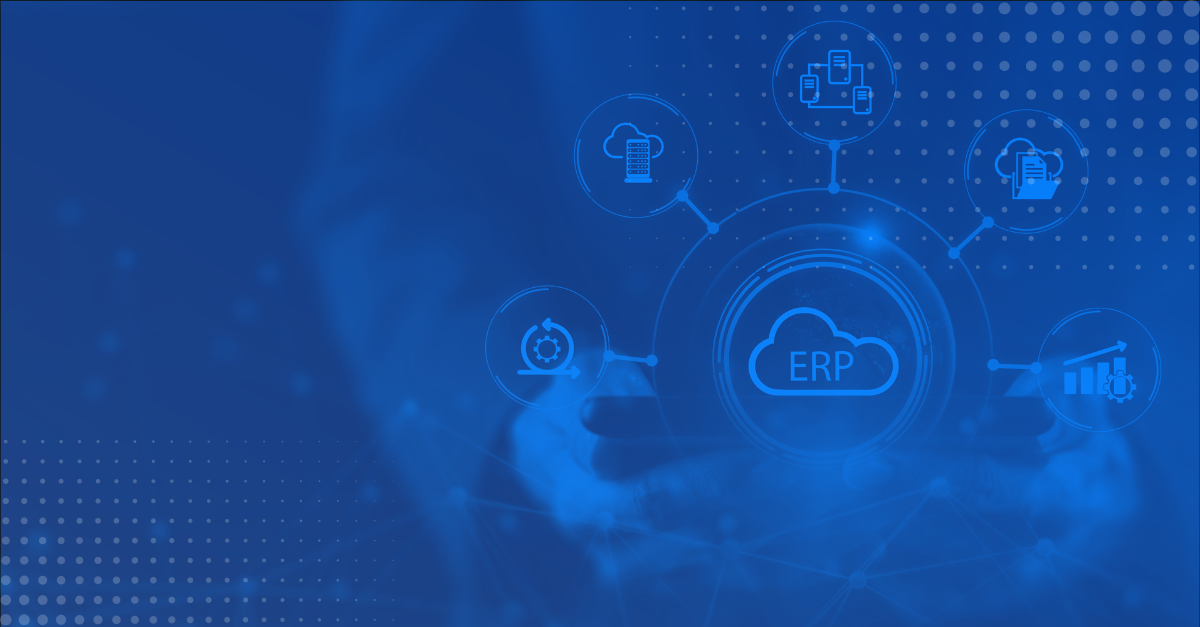Enterprise Resource Planning (ERP) systems have become an essential component of modern business operations. They offer an integrated, centralised solution for managing various business processes, such as finance, human resources, and supply chain management.
But, how do you determine whether your business and team are ready for ERP?
Determining Your Business’s Readiness for ERP
Before undertaking any form of digital transformation project, such as selecting an ERP, it’s crucial to determine if your business is truly prepared for such a significant change. Implementing ERP involves a substantial investment of time, resources, and commitment. To ensure a successful implementation and optimise the return on investment, it is vital to assess your organisation’s readiness in various aspects, such as business processes, technology infrastructure, and organisational culture.
”ERP implementation is a complex process, and businesses must be prepared to evaluate their readiness before embarking on such a significant undertaking. Without proper evaluation and preparation, businesses risk wasting time and resources on an ERP implementation that does not meet their needs, resulting in additional costs and delays.
Tiernan O'ConnorSales Director - DWR
Understanding the Impacts of ERP
Implementing an Enterprise Resource Planning (ERP) system can have a profound impact on your organisation. By streamlining and integrating various business functions, an ERP system can enhance overall efficiency, productivity, and decision-making. However, it is essential to understand the different ways an ERP implementation can affect your organisation to manage the process effectively and maximise the benefits.
ERPs Effect on Operational EfficiencyStreamlined ProcessesAn ERP system automates and integrates various business processes, reducing manual data entry, minimising errors, and increasing the speed of operations. Centralised Data ManagementBy centralising data from different departments into a single system, an ERP solution enables easier access to information, improving data consistency and visibility across the organisation. Inventory and Supply Chain ManagementERP systems provide real-time inventory management and supply chain visibility, allowing for more accurate demand forecasting and improved order fulfilment. |
Financial Impacts of Implementing ERPReduced Operating CostsBy automating and streamlining processes, ERP systems can help reduce labour costs, eliminate redundancies, and lower the overall cost of operations. Improved Financial ReportingERP systems offer advanced financial reporting capabilities, enabling more accurate and timely financial data for better decision-making. Increased RevenueImproved operational efficiency, better customer service, and enhanced decision-making can ultimately lead to increased revenue for your organisation. |
How ERP Impacts Organisational Culture and Employee ExperienceEmbracing ChangeImplementing an ERP system requires a cultural shift within your organisation, as employees adapt to new processes and technologies. Effective change management strategies are crucial to ensure a smooth transition and employee buy-in. Employee EmpowermentBy providing employees with access to real-time data and streamlined processes, an ERP system can empower them to make better decisions, improve their productivity, and enhance their overall job satisfaction. Collaboration and CommunicationERP systems facilitate better communication and collaboration among employees by centralising information and breaking down departmental silos. |
How ERP Supports Strategic Decision-MakingData-Driven InsightsERP systems provide access to real-time data and analytics, enabling more informed and strategic decision-making at all levels of your organisation. Scalability and AdaptabilityERP systems can scale with your business, allowing for easier management of growth and adaptation to changing market conditions. Risk Management and ComplianceERP systems can help your organisation effectively manage risk and ensure compliance with industry-specific regulations. By centralising data and providing comprehensive reporting and auditing tools, ERP systems enable a more efficient approach to identifying potential risks, monitoring performance, and adhering to regulatory requirements. |
Planning a Comprehensive ERP Readiness Assessment of Your Company
A thorough evaluation of your business’ current state will help you identify areas that may need improvement or additional preparation before the ERP implementation. This includes assessing the following aspects:
Assess Your Current Business Processes and Data Collection
Financial Data and Reporting
To effectively assess your business processes and data collection, it is essential to examine the efficiency and accuracy of your organisation’s financial data management and reporting processes. Identifying any challenges in generating precise and timely financial reports will help you pinpoint areas that require improvement. Consider whether your organisation can benefit from enhanced financial data tracking, advanced reporting tools, or more streamlined processes to boost financial decision-making and performance.
Customer Data and Relationship Management
For customer data and relationship management, it’s crucial to evaluate the quality of your customer data and gauge the effectiveness of your customer relationship management (CRM) tools. Determine whether your CRM system efficiently supports your organisation’s sales objectives and customer service initiatives, and identify areas for improvement in data management and customer interactions. By refining customer experiences through superior data management and more personalised interactions, you can increase customer satisfaction and foster loyalty.
Procurement, Supply Chain, and Inventory Management
A critical aspect of your organisation’s operations involves procurement, supply chain, and inventory management. Begin by assessing the efficiency and accuracy of your procurement processes, including supplier management, purchasing, and contract management. Next, evaluate the effectiveness of your supply chain processes, including logistics, transportation, and order fulfilment. It is also important to assess your current inventory management practices, such as stock control, demand forecasting, and warehouse management.
Identifying inefficiencies or bottlenecks in your procurement, supply chain, and inventory management processes enables you to contemplate potential improvements achievable through an ERP system.
”By identifying areas of inefficiency and gaps in reporting, businesses can gain a clear understanding of the potential benefits an ERP system can bring. Failure to do so may result in businesses investing in an ERP system that does not address their specific needs, resulting in wasted resources and lower returns on investment
Tiernan O'ConnorSales Director - DWR
Document and Evaluate Current Technology Infrastructure
Current IT Hardware Assessment
To gain a comprehensive understanding of your organisation’s technology infrastructure, it is crucial to document and evaluate the current IT hardware being used across all departments. This assessment should encompass a detailed inventory of all hardware components, including servers, workstations, networking equipment, and peripherals. This will help you uncover any hardware related issues or considerations you may need to make when evaluating potential ERP systems.
Document Current System Integrations and Their Quality & Usefulness
A key aspect of evaluating your technology infrastructure’s readiness for ERP is documenting your existing system integration within your organisation. This process involves identifying the various software applications and systems used in different departments and understanding how they interact with each other. Mapping out these connections can help identify any gaps, redundancies, or inefficiencies in the current system integration. This information will be invaluable as it will help you determine which areas can benefit the most from improved integration and data sharing, and how those improvements may impact efficiencies of both your team and your system.
Review In House IT Expertise & Capabilities
Every business is different, and varying degrees of capability when it comes to managing complex IT systems. By evaluating the skills and experience of your current team, whether they are IT team members, or from other departments you will be able to determine how well they are positioned in their ability to manage and support the implementation of new technologies, such as an ERP system. Consider the level of technical knowledge, familiarity with relevant programming languages, and experience with system integration and data migration. By understanding your organisation’s IT capabilities, you can better determine whether you will need additional support, training, or resources during the ERP implementation process. Consider Organisational
Culture and Change Management
Learning from Past Technology Projects
When preparing to implement an ERP system, taking into account your organisation’s track record with past technology projects can be enlightening. By examining previous successes and challenges, as well as the lessons learned from these experiences, you gain a deeper understanding of your organisation’s capacity to adapt to and manage technological changes.
Fostering a Flexible Team
It is crucial to assess your team’s flexibility and openness to embracing new technology and processes. Team members’ willingness to adapt and learn new skills can significantly impact the success of an ERP implementation. Encourage a growth mindset within your organisation and provide opportunities for training and skill development to facilitate a smoother transition to the new system.
Determine Whether Your Business has a Commitment to Change from Decision Makers
The success of an ERP implementation relies heavily on the support and dedication of key stakeholders. Assess their willingness to invest time, resources, and effort into the project. It is important to gain a thorough understanding of their expectations of the benefits and challenges that come with the implementation . Gaining their buy-in and support early in the process can significantly contribute to the overall success and viability of ERP for your company.
”ERP implementation requires a collaborative effort across all departments and teams, so it's critical to have strong communication and buy-in from decision-makers. Without this, ERP implementation efforts may face resistance and fail to gain traction, resulting in missed opportunities for business growth and improvement.
Tiernan O'ConnorSales Director - DWR
Determine Reporting Needs and Gaps
Assessing the Accuracy of Current Reporting
To understand how an ERP system could affect your organisation’s reporting, it is essential to first assess the accuracy of your current reporting practices. Analyse the reliability of your existing reports and identify any discrepancies, inconsistencies, or errors. Pinpointing areas for improvement can help you recognise the potential benefits of implementing an ERP system for reporting purposes.
Identifying Core KPIs for Departmental Performance Tracking
An integral part of enhancing your reporting is determining the core key performance indicators (KPIs) that are most relevant for tracking departmental performance. Identifying these KPIs can help you streamline the reporting process and ensure that all departments are focused on achieving the same goals. An ERP system can provide a unified platform for tracking and reporting these KPIs, ensuring that all team members have access to the same information and can work together more effectively.
Evaluating Data Consolidation Needs and Analytics Platforms
Another crucial aspect to consider is your organisation’s data consolidation needs and the analytics platforms currently in use. Assess whether your existing analytics tools are providing the necessary insights and whether the data they produce is easily accessible and understandable for decision-makers. An ERP system can centralise data from multiple sources, making it easier to consolidate, analyse, and generate meaningful insights. This centralisation can lead to more accurate reporting and ultimately support better decision-making across the organisation.
Identify Current Points of Inefficiency and Prioritise by Importance
Documenting Processes with Manual Data Entry
To pinpoint areas where your organisation can improve efficiency, begin by documenting processes that involve manual data entry. These processes can often be time-consuming, error-prone, and a potential source of bottlenecks. By identifying areas where manual data entry is prevalent, you can prioritise which processes should be automated to improve overall efficiency.
Estimating Time Savings from Process Automation
Once you have documented the processes that rely on manual data entry, estimate the potential time savings that could be achieved by automating these processes. Consider factors such as data input time, error correction, and the time spent on related tasks. This will help you build a case for implementing an ERP system, as the automation features provided by such systems can greatly streamline these processes and reduce the time spent on manual tasks.
Realistically Assessing System Scalability
Finally, it’s important to realistically assess whether your current systems can scale quickly to meet the demands of your growing organisation. Consider factors such as system performance, adaptability to changing business requirements, and the ease with which new features or functionalities can be added. By evaluating your systems’ scalability, you can determine if implementing an ERP system would provide the necessary flexibility and capacity to support your organisation’s growth.
”Identifying and prioritising goals during the scoping process is critical for ensuring that an ERP system delivers maximum value. By not doing so, business’ risk implementing an ERP system that does not address their most pressing inefficiencies, resulting in missed opportunities for growth and improvement.
Tiernan O'ConnorSales Director - DWR
Selecting the Right ERP System for Your Business
Selecting the appropriate Enterprise Resource Planning (ERP) system is paramount for reaping its vast benefits. Your chosen system should be a perfect fit for your business, propelling you towards your long-term goals while seamlessly integrating with your current processes. Here are the crucial factors to evaluate when exploring potential ERP solutions:
Functionality
The first step in your selection process should be to list out your specific business needs. An ideal ERP system will meet these requirements and seamlessly integrate with your current processes. For instance, if your organisation relies heavily on inventory management, the ERP system should have robust inventory control features. Conversely, a business with a focus on customer relationships should look for a system with powerful CRM capabilities.
”The functionality of the ERP system should align with the business processes. An in-depth understanding of your business model will guide you to the right ERP system.
Tiernan O'ConnorSales Director - DWR
Scalability
Business growth is an essential goal for any organisation. Consequently, the ERP system you select should be capable of scaling up as your business expands. Your system should comfortably handle increases in data volume and user count while providing the ability to add new features or modules as required.
Vendor Reputation
The reputation of the ERP vendor can significantly impact your system’s effectiveness and reliability. Thoroughly research the vendor’s track record, financial stability, and customer reviews. It’s important to assess the vendor’s post-implementation support and whether they regularly update and improve their software.
Stakeholder Involvement and Pilot Testing
The ERP system will affect multiple areas of your business, so involving key stakeholders in the decision-making process is vital. Each department can offer unique insights into what they need from the system, ensuring the chosen solution meets company-wide requirements.
Additionally, conducting a pilot test with the chosen ERP system can help identify potential challenges and give users a chance to familiarise themselves with the system before full-scale implementation.
Ensuring a Smooth ERP Implementation
Successfully implementing an Enterprise Resource Planning (ERP) system is a complex task, requiring meticulous planning, preparation, and execution. However, with the right approach, your business can ensure a smooth transition that will optimise your operations and increase productivity. Let’s delve into some best practices to guide your ERP implementation process:
Crafting a Detailed Project Plan
An ERP implementation process is a significant project that affects multiple facets of your business. As such, it necessitates a detailed project plan that outlines objectives, timelines, and responsibilities. This plan should be comprehensive, accounting for pre-implementation activities, such as data migration and system configuration, as well as post-implementation activities like user training and system testing.
”A well-crafted project plan is the foundation of a successful ERP implementation. It provides a clear roadmap, aligns everyone’s efforts, and helps manage expectations.
Geoff LaytonPrincipal Consultant - DWR
Keeping Stakeholders Informed and Engaged
Communication is a crucial element of any ERP implementation process. It’s essential to keep all stakeholders, including executives, managers, and employees, informed and engaged throughout the process. Regular updates help ensure everyone understands the project’s status, what’s expected of them, and how the new system will benefit their roles.
Allocating Adequate Resources
Assigning a dedicated project team to oversee the ERP implementation is vital. This team should include members with a broad range of skills, from project management to technical expertise, who can work together to troubleshoot issues, coordinate tasks, and ensure the project stays on track.
Offering Comprehensive Training and Support
The new ERP system will likely introduce significant changes to your employees’ day-to-day tasks. Providing comprehensive training and resources will help them adapt to the new system, reduce resistance to change, and maximise the system’s use. On-going support should also be available to address any issues or concerns as they arise.
Successfully implementing an ERP system is a transformative process, necessitating meticulous planning and execution. With a detailed project plan, effective communication, a dedicated team, and comprehensive training, your business can enjoy a smooth transition to a new ERP system, reaping the rewards of improved efficiency and productivity.
The Wrap Up
In conclusion, evaluating your organisation’s readiness for ERP implementation is a critical step towards ensuring the success of your project. By thoroughly assessing your current business processes, data management, technology infrastructure, and organisational culture, you can identify the areas where an ERP system can deliver the most value and address any potential challenges that may arise during the implementation process.







